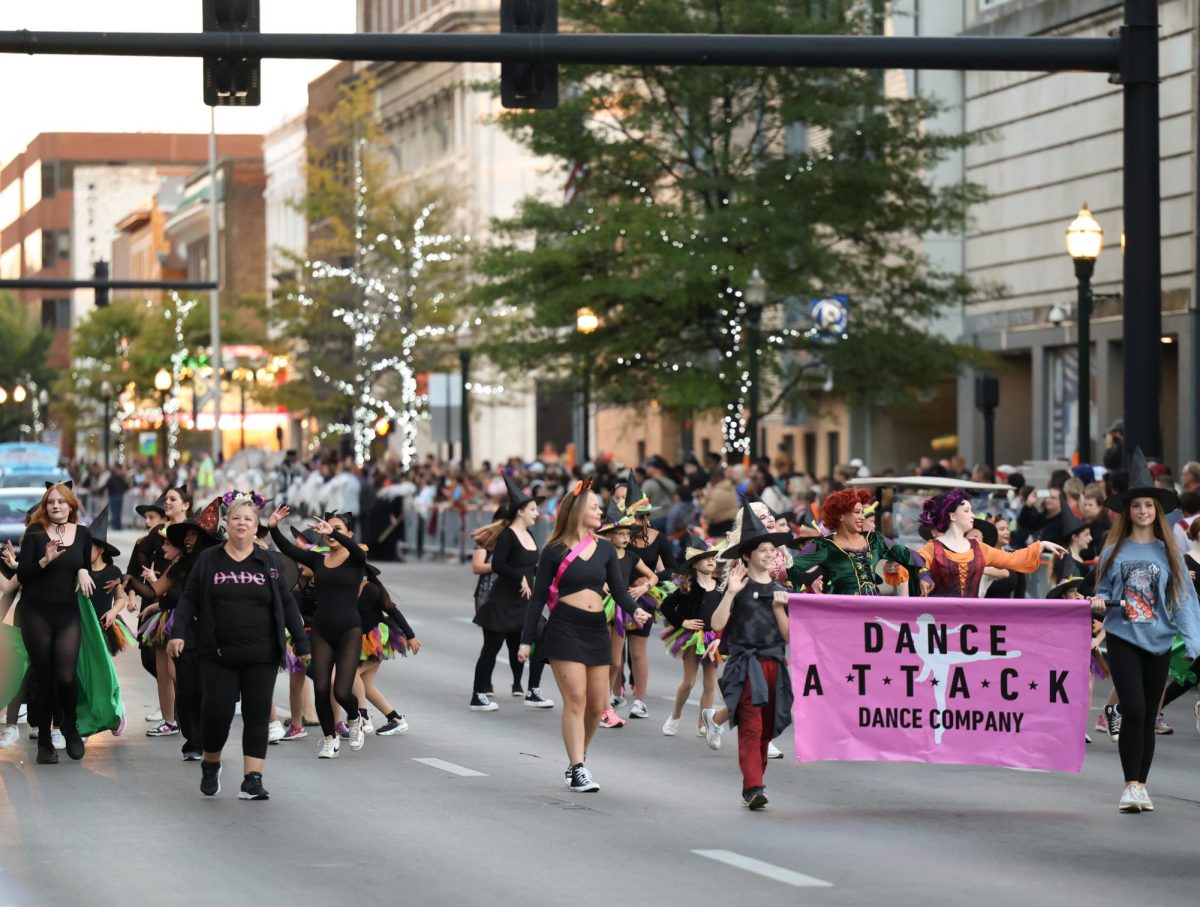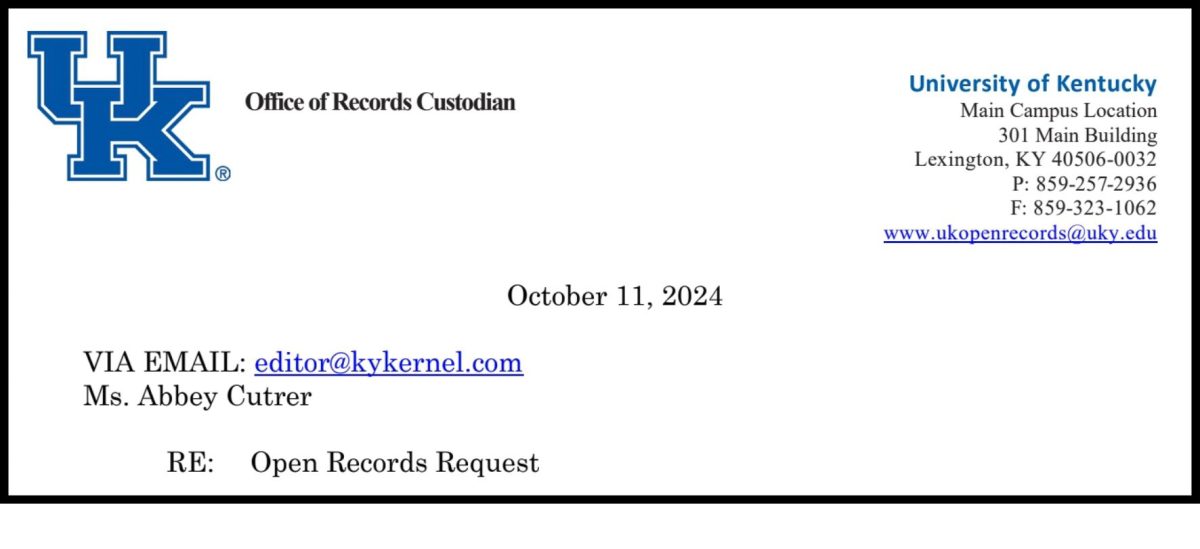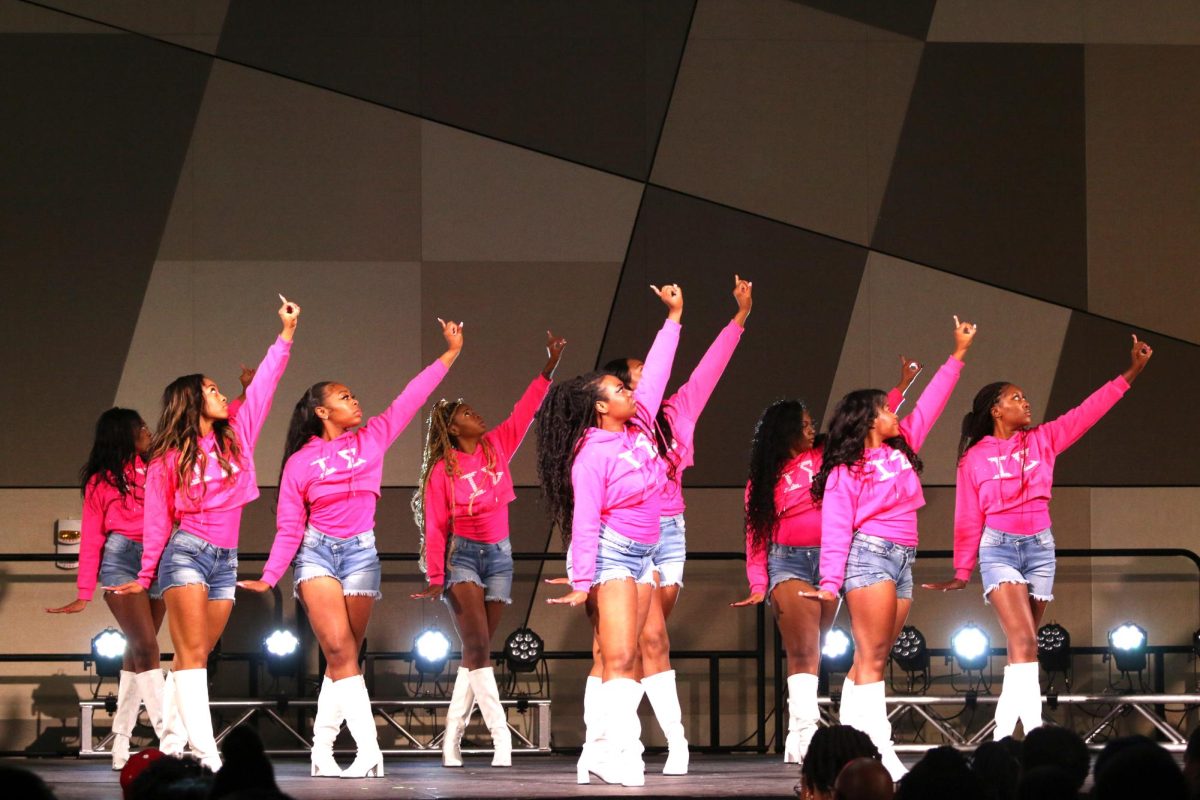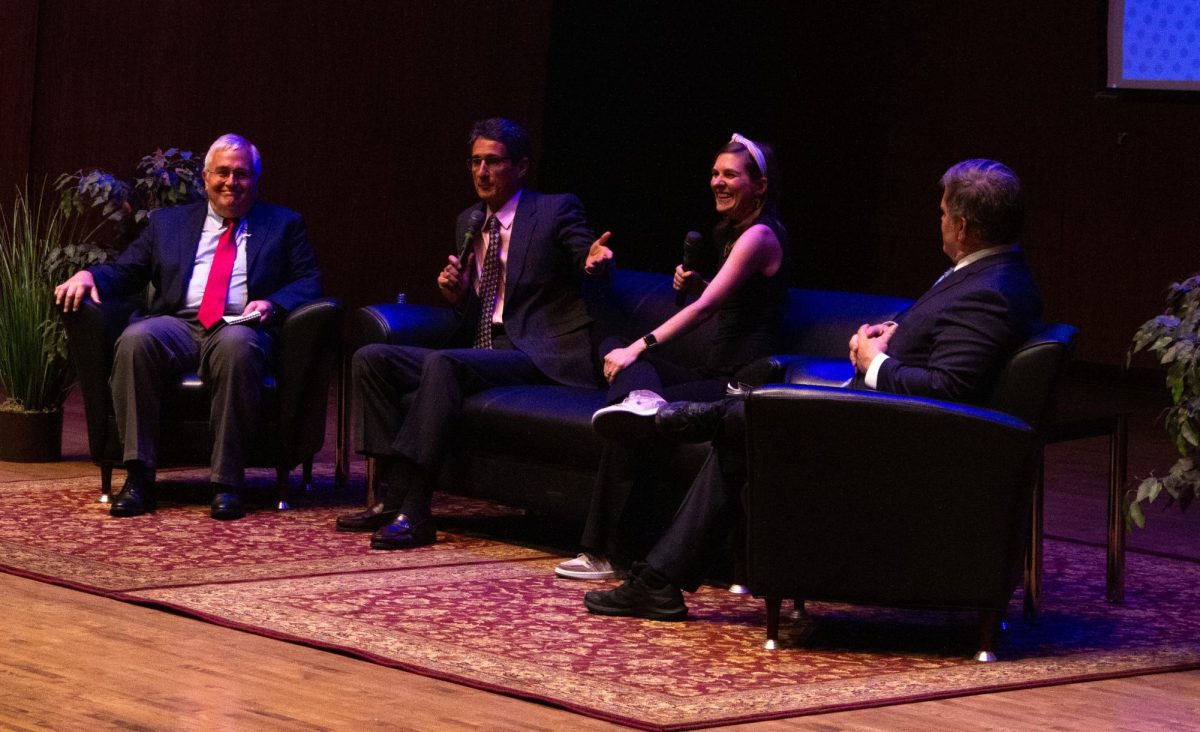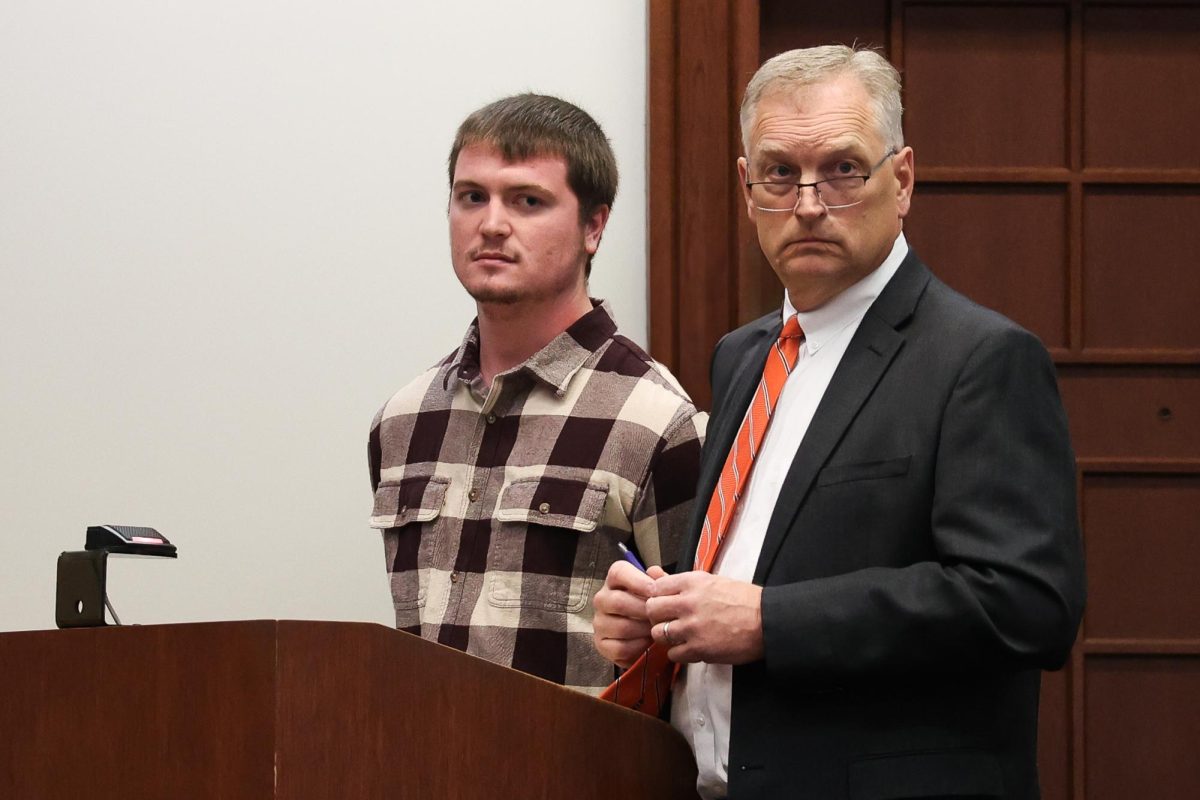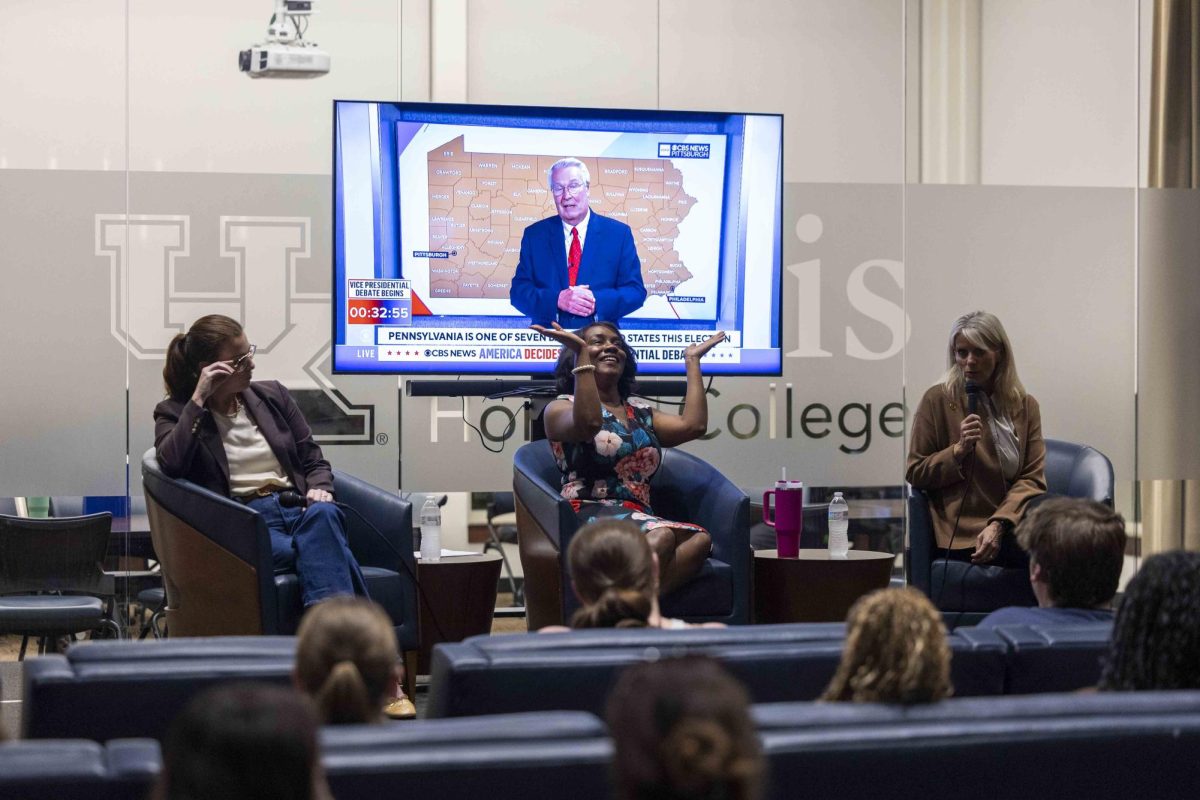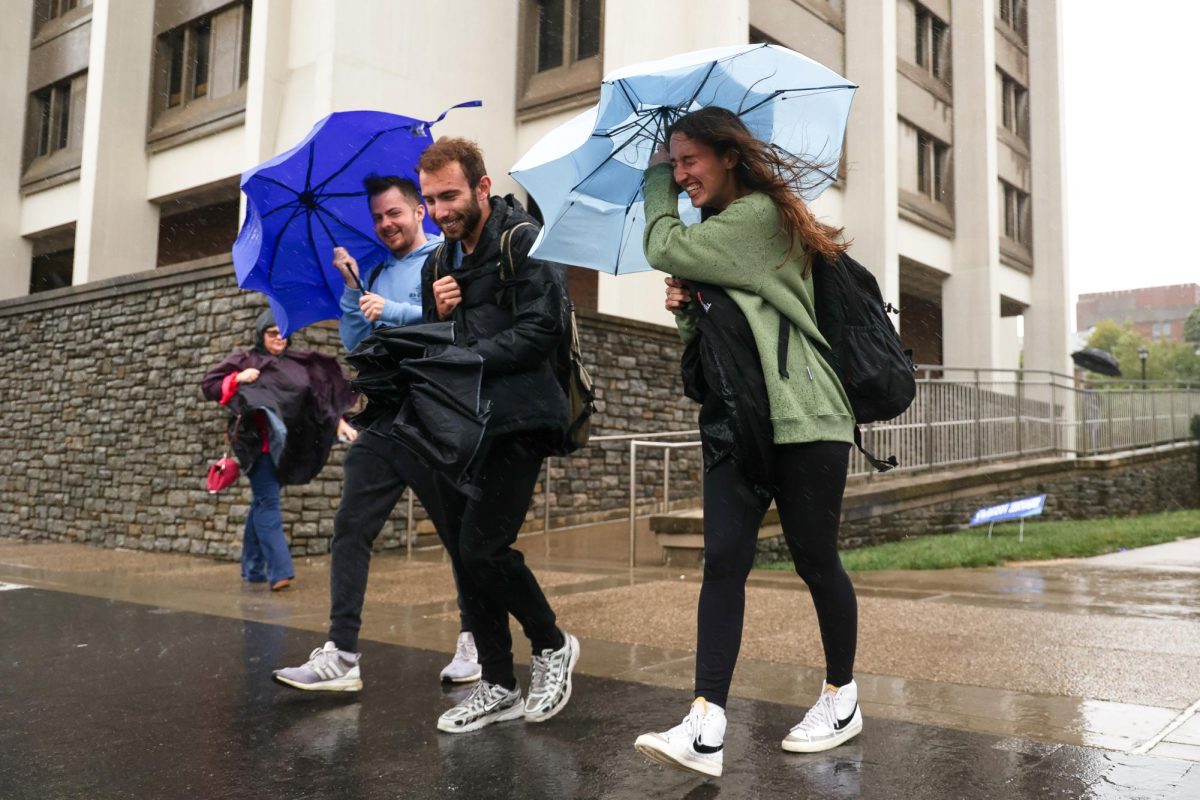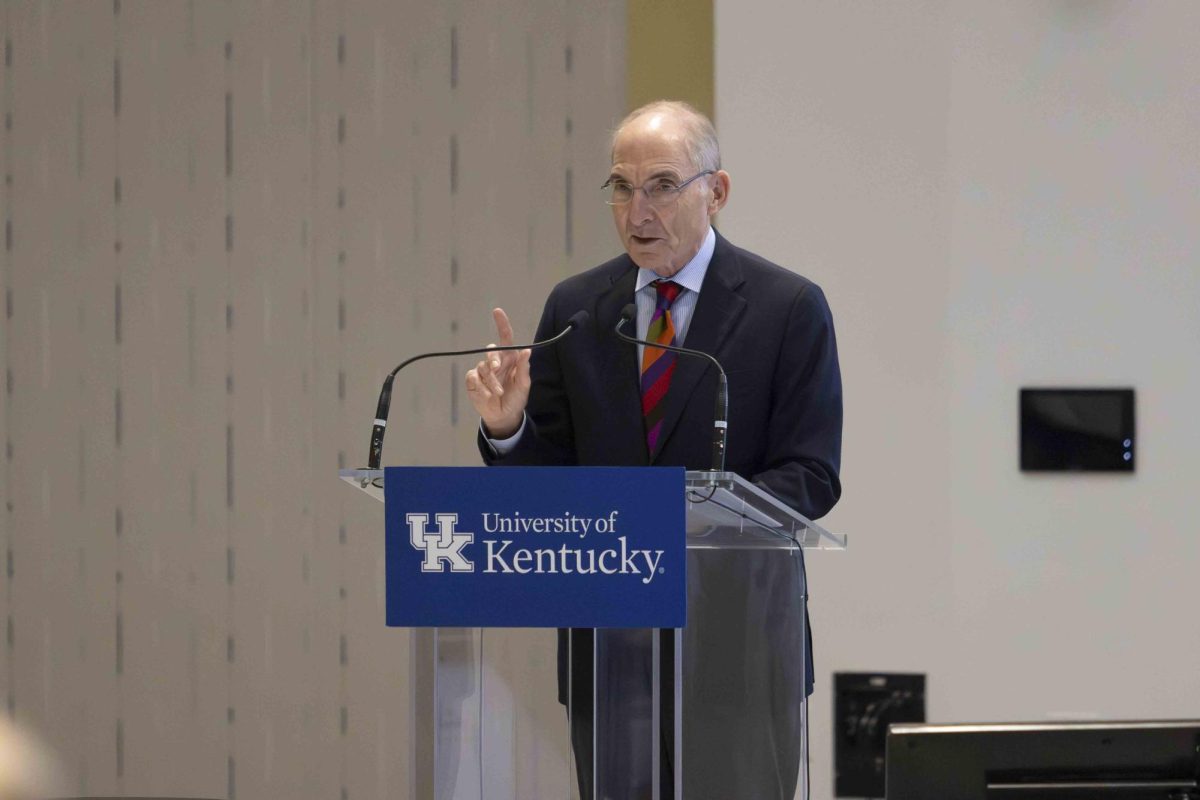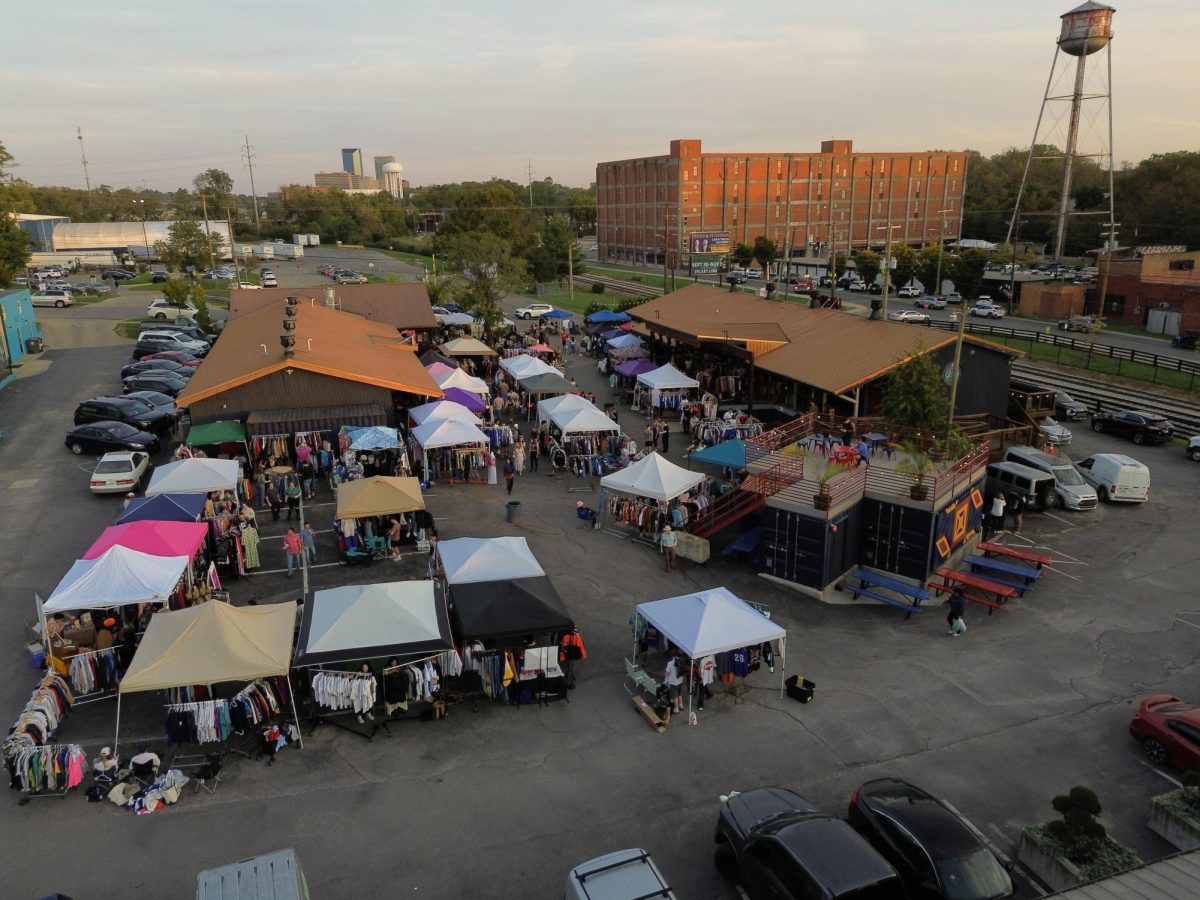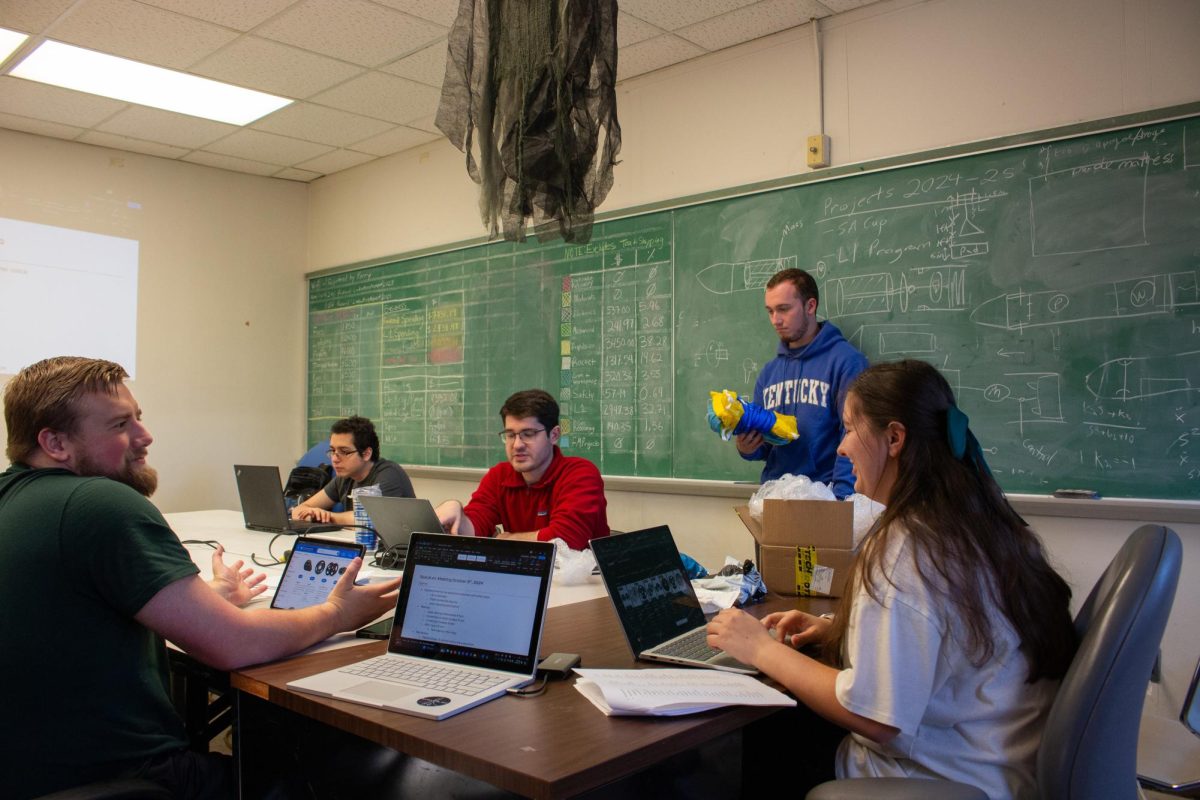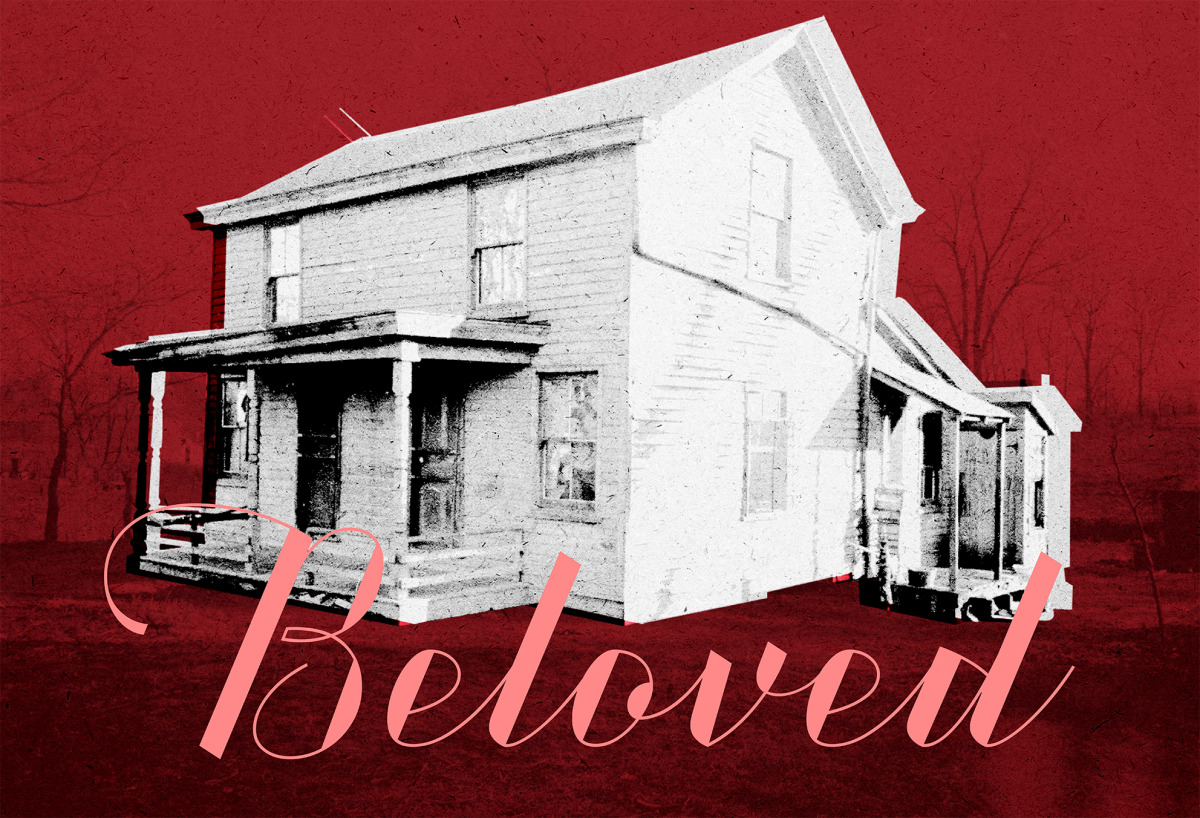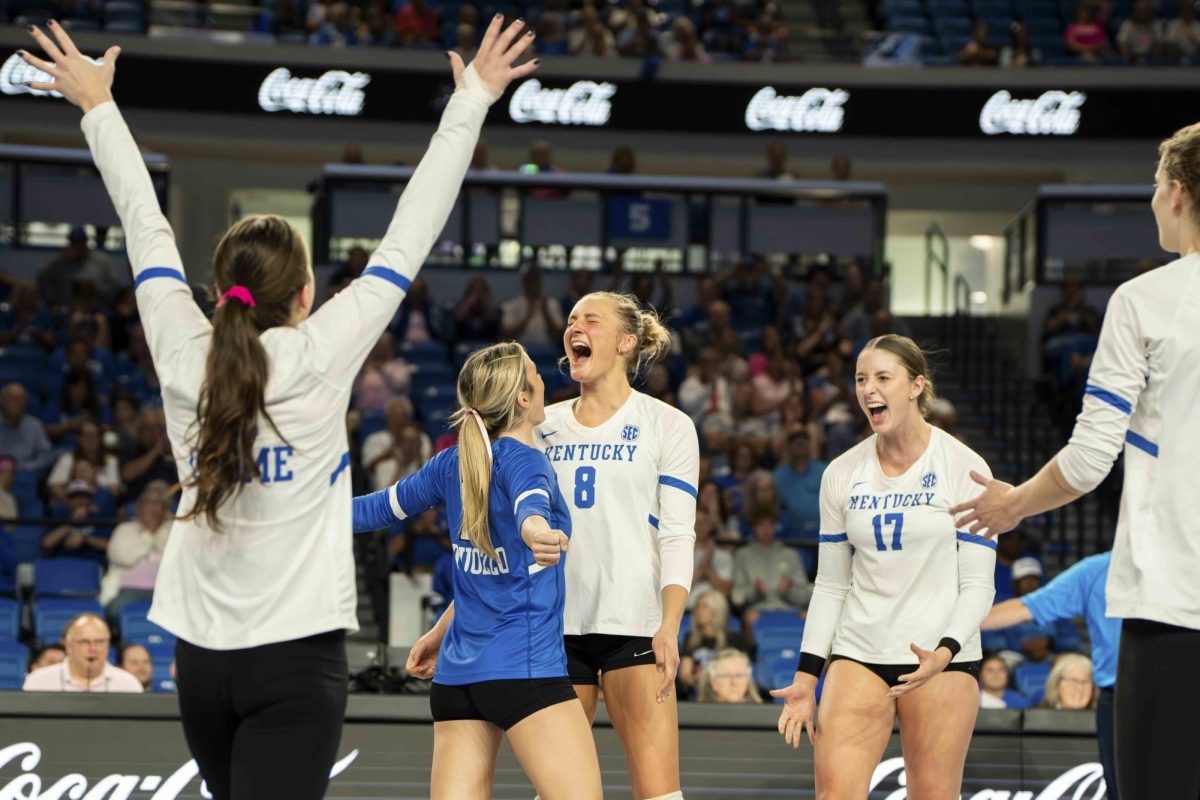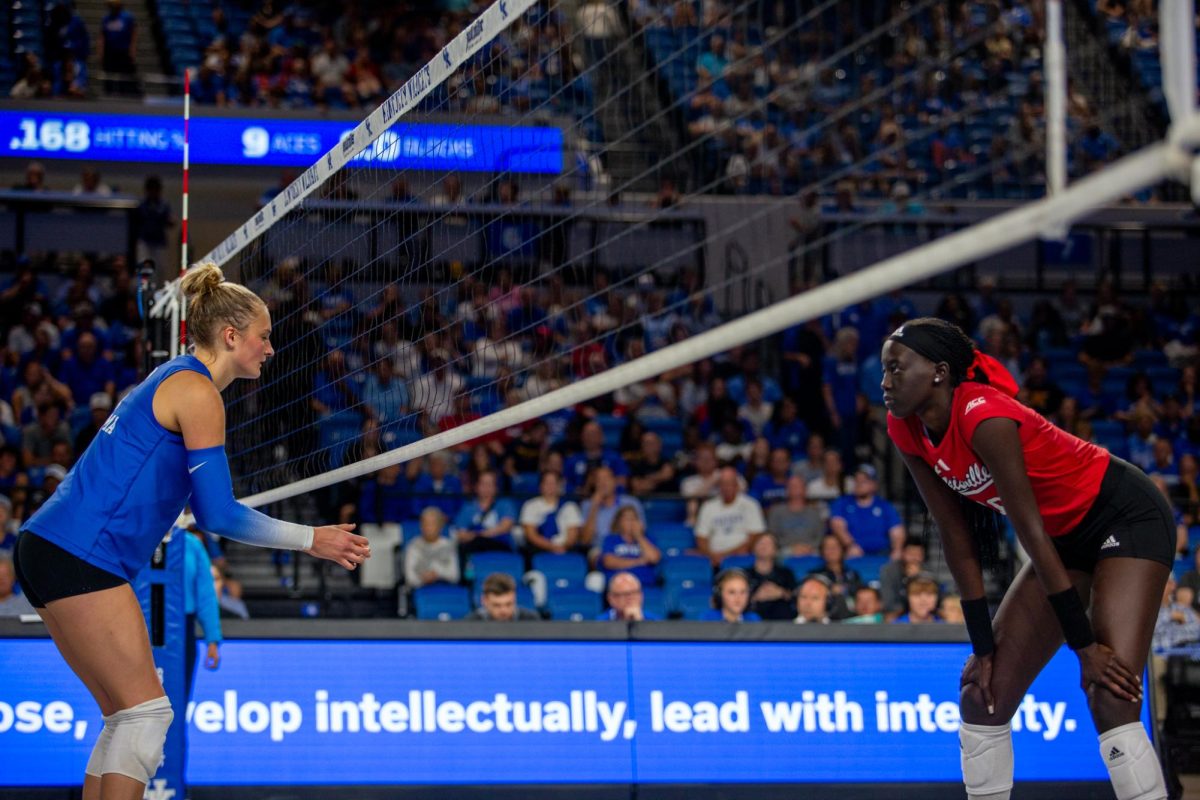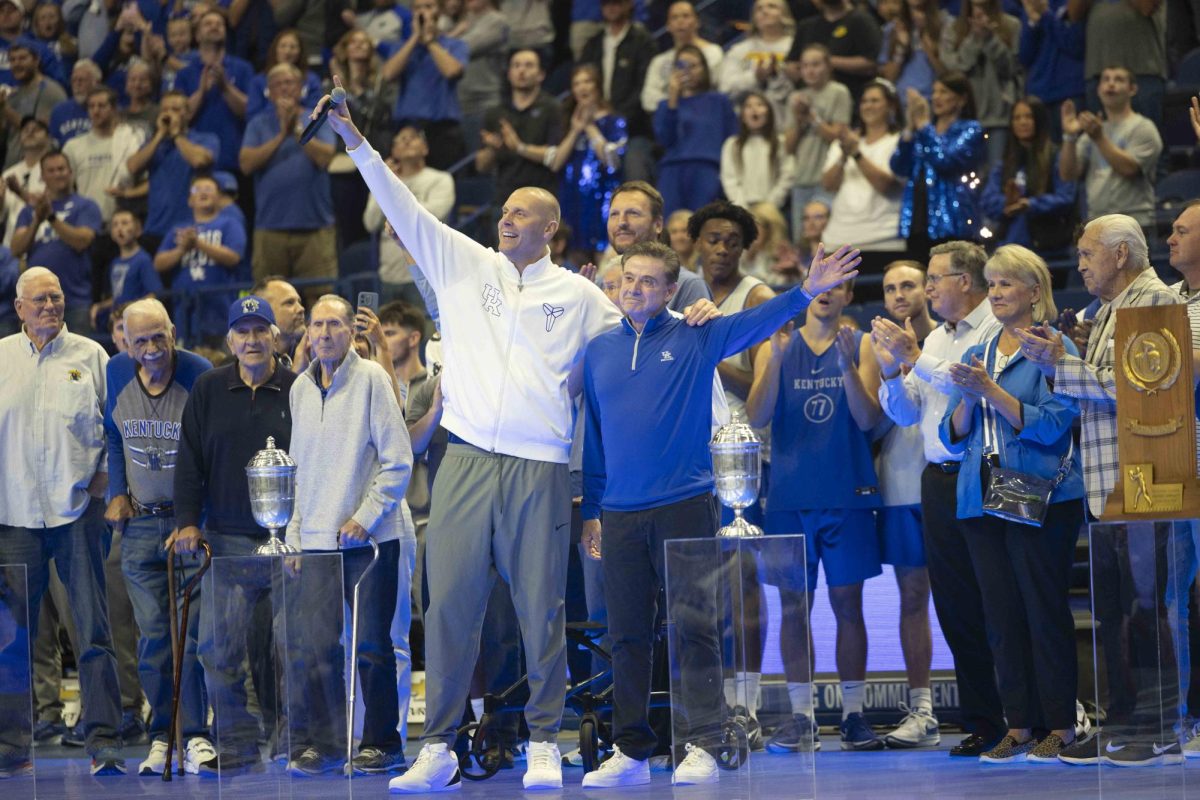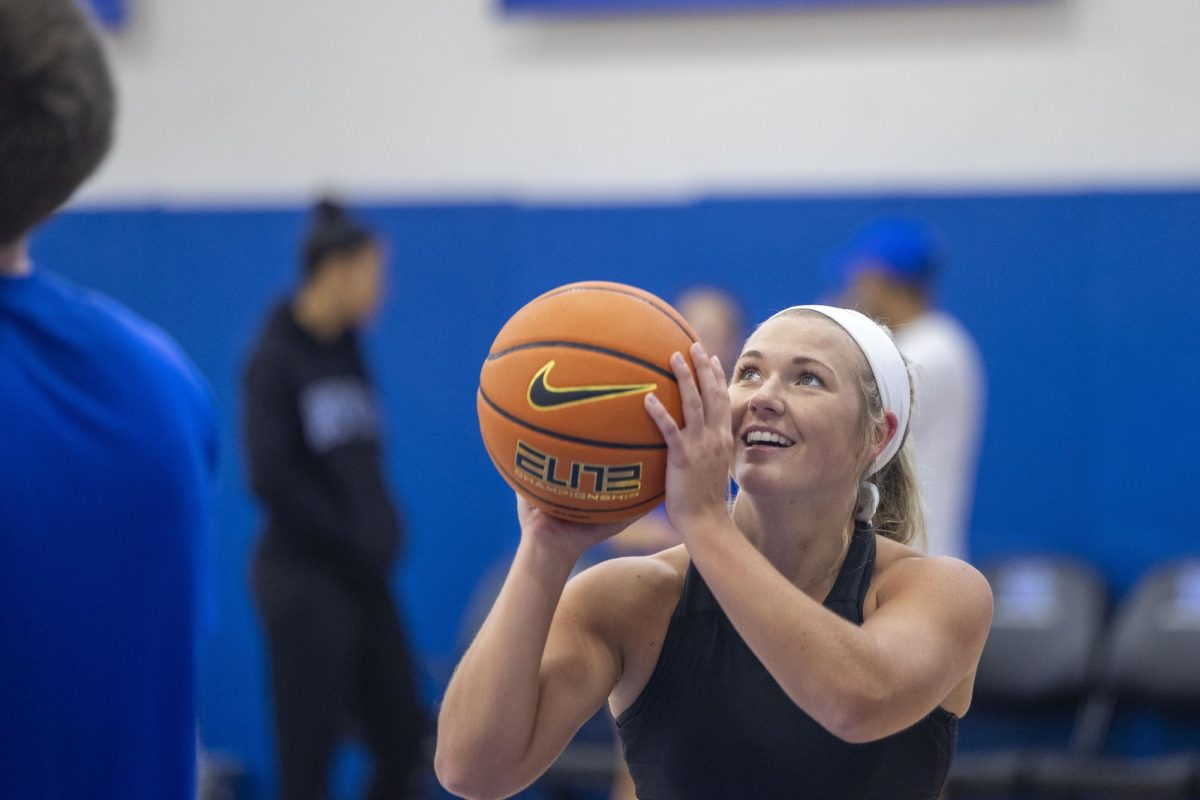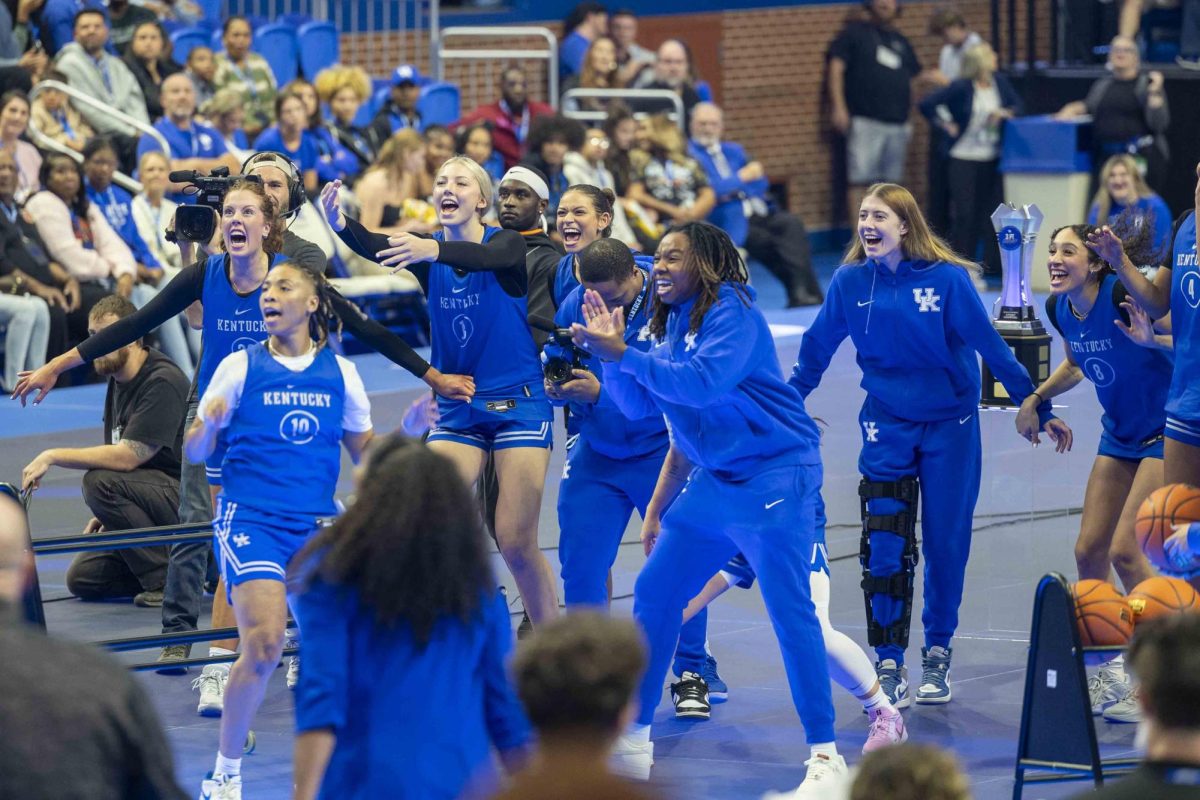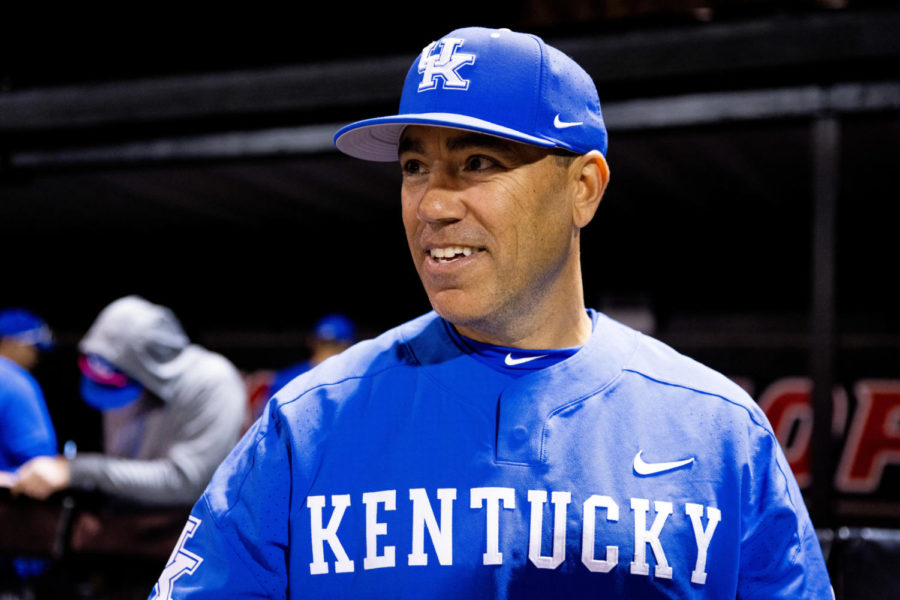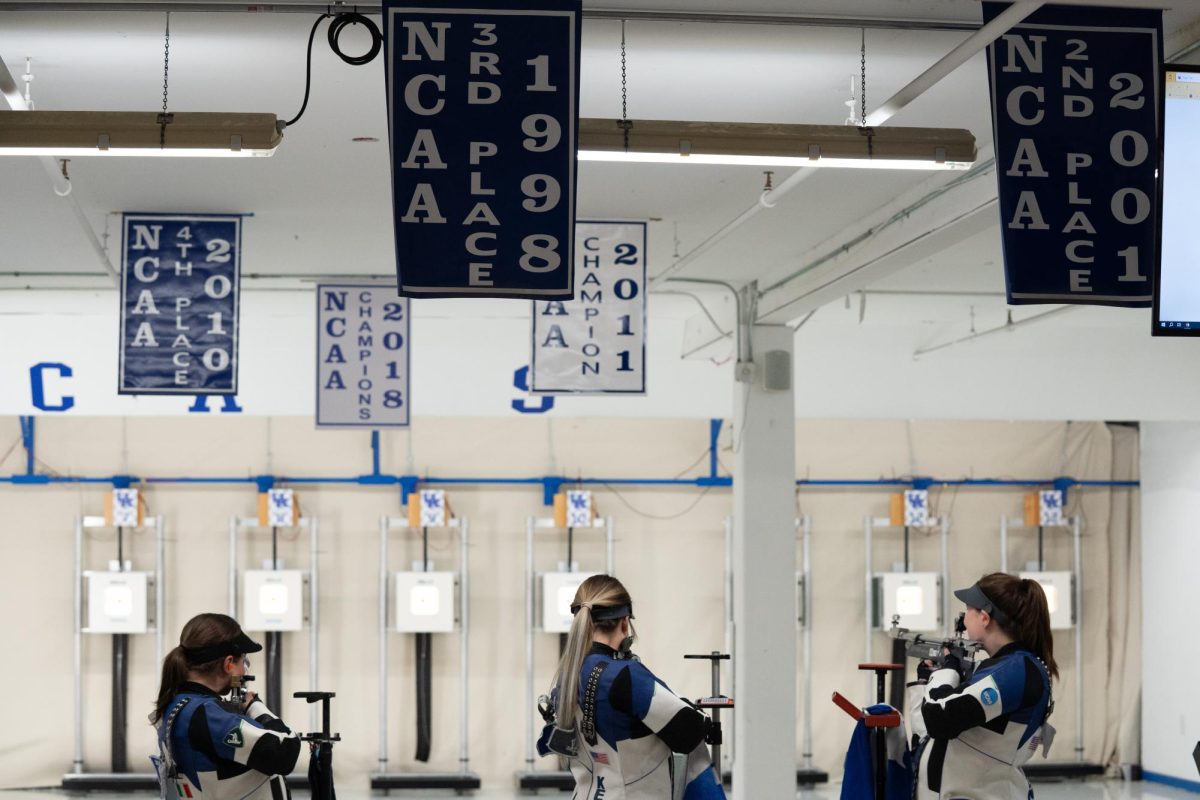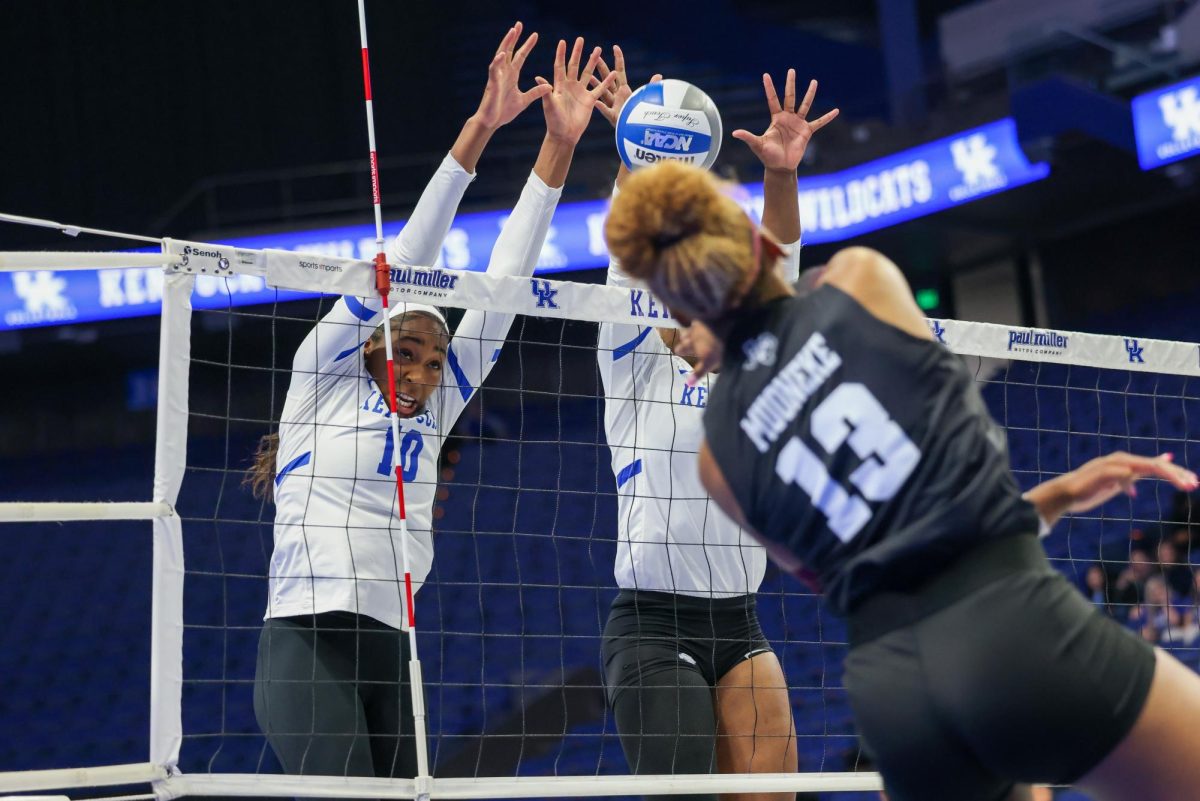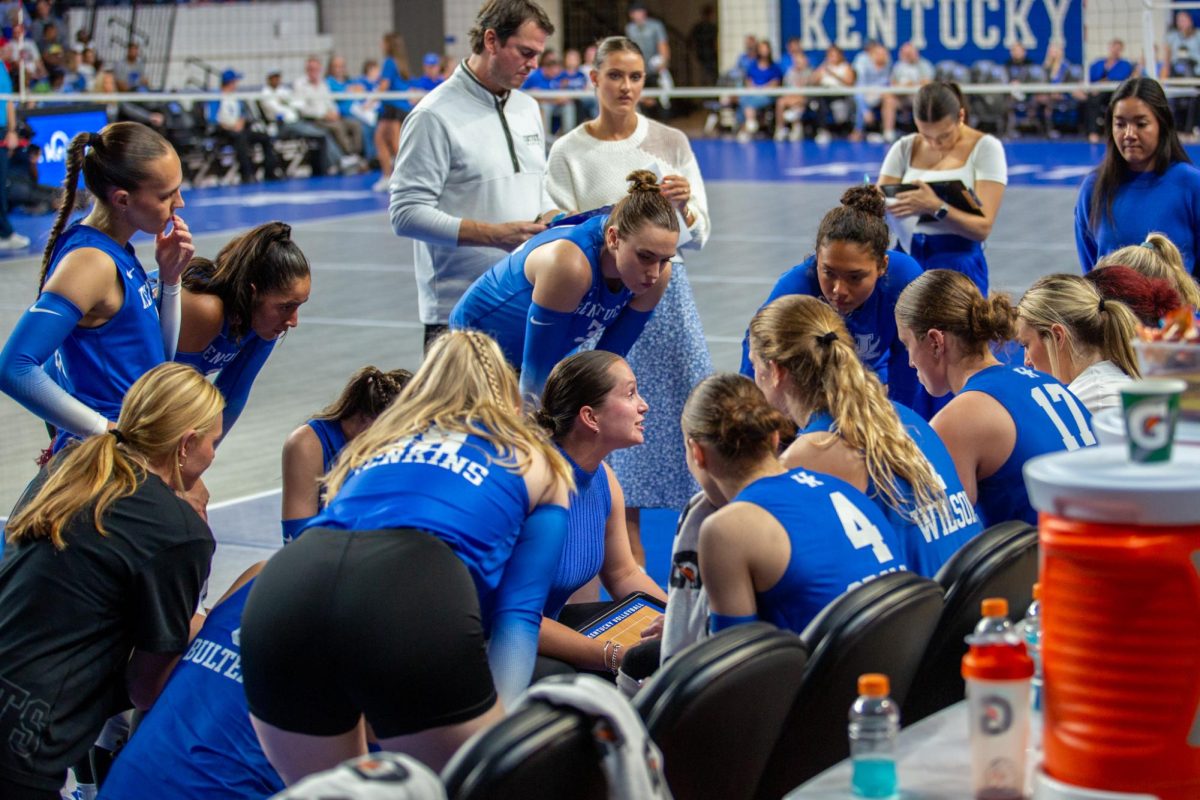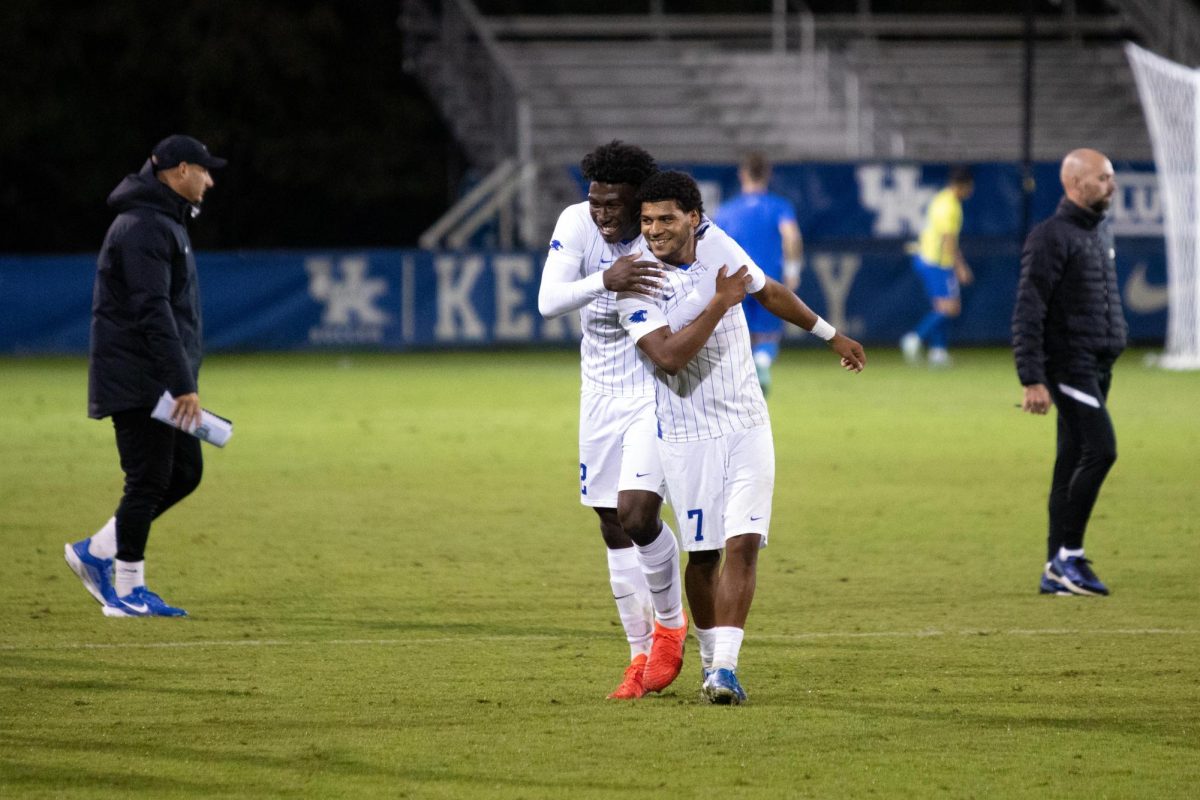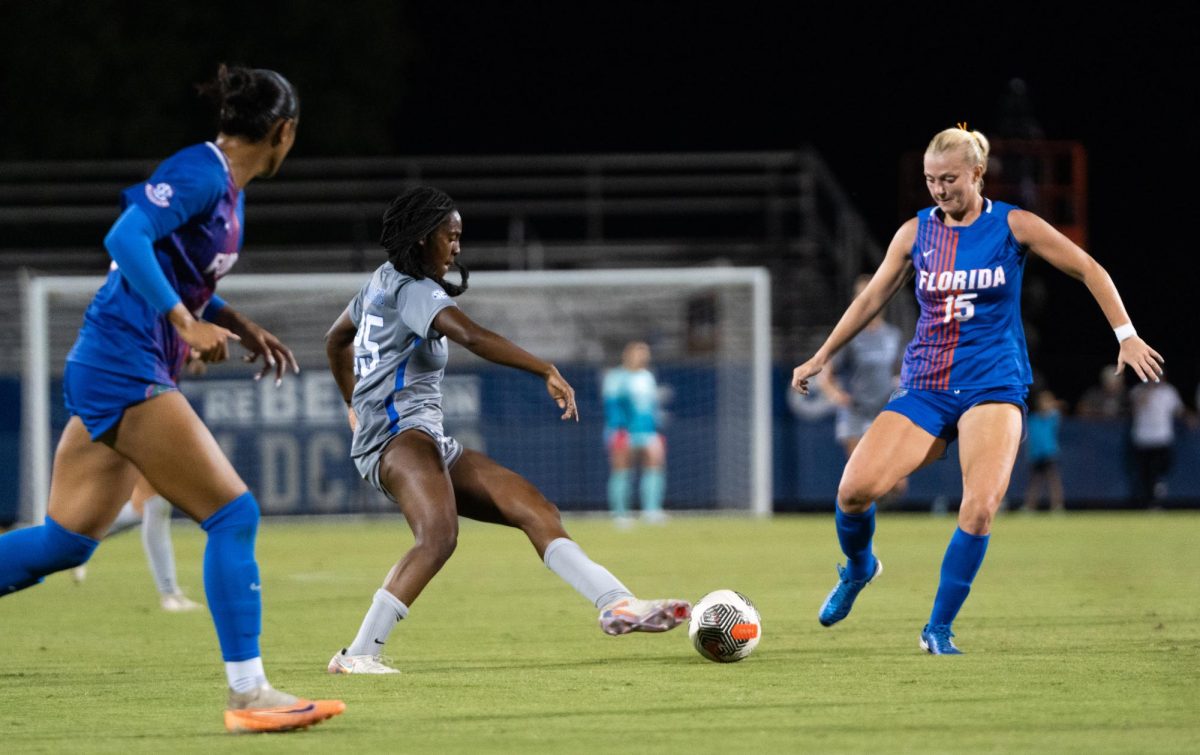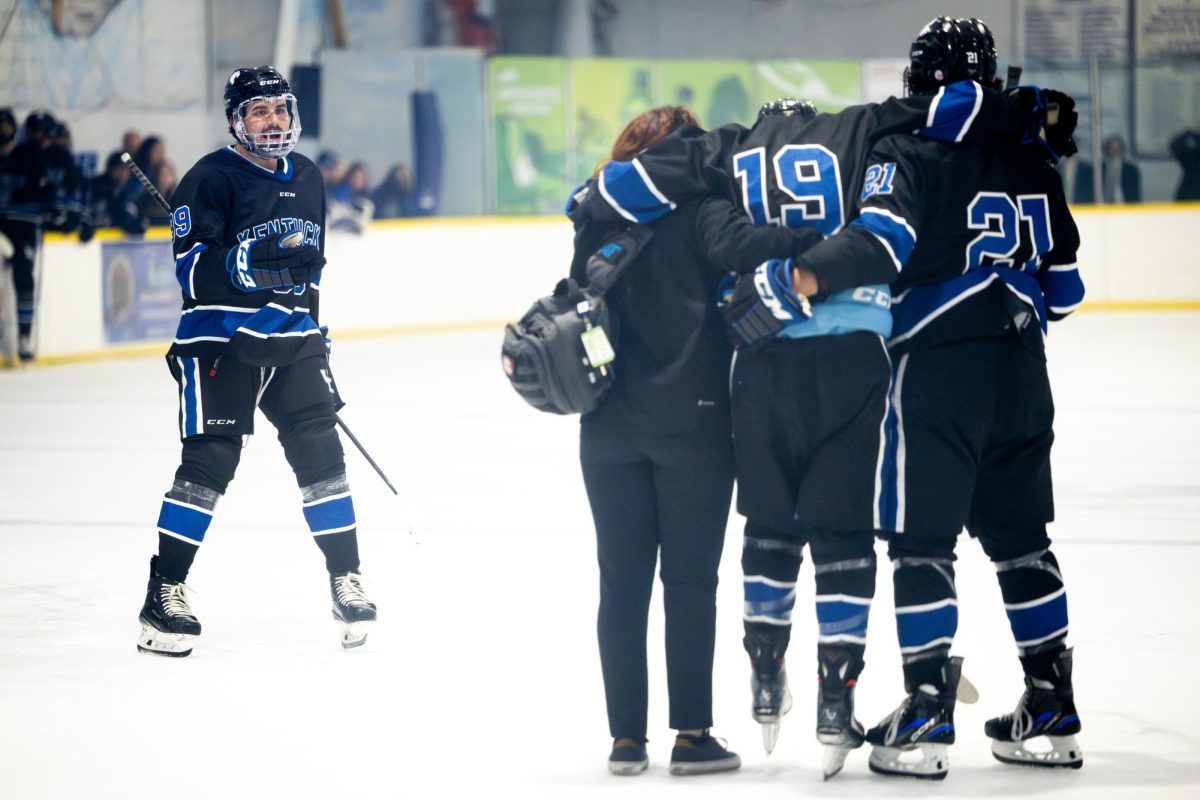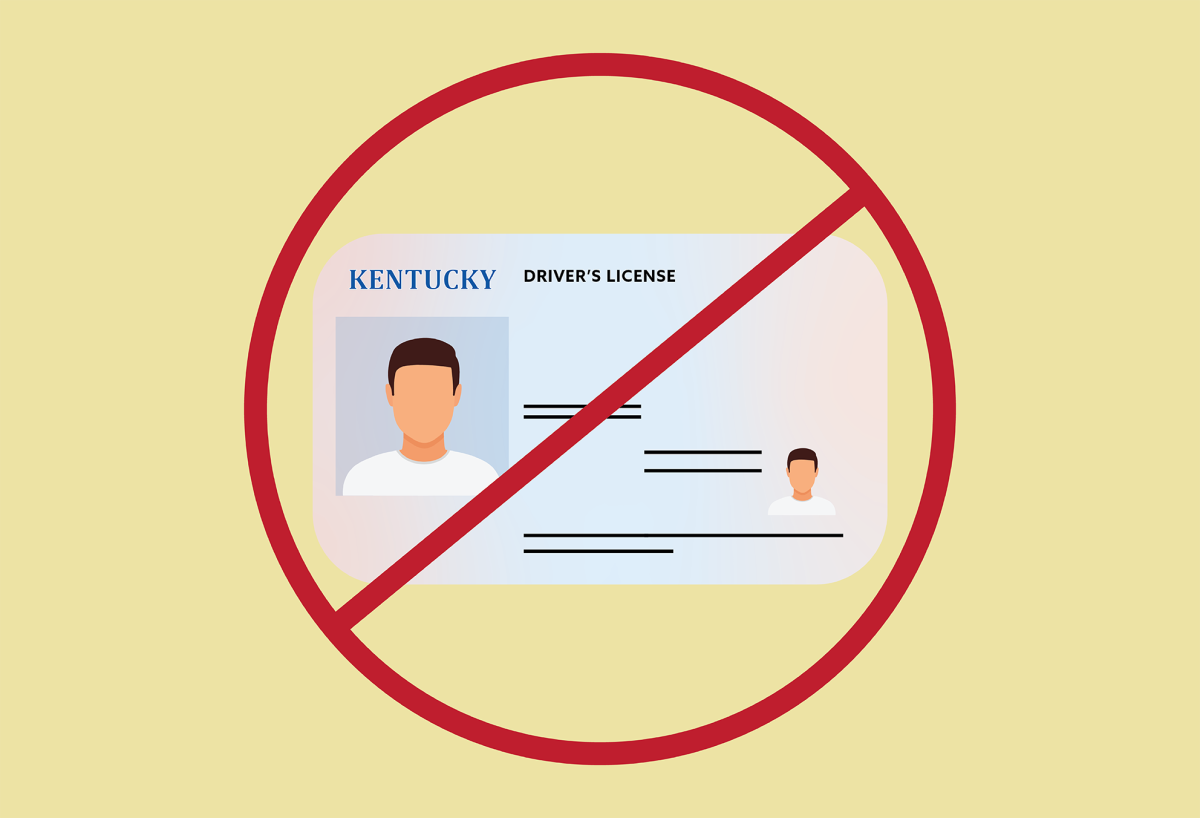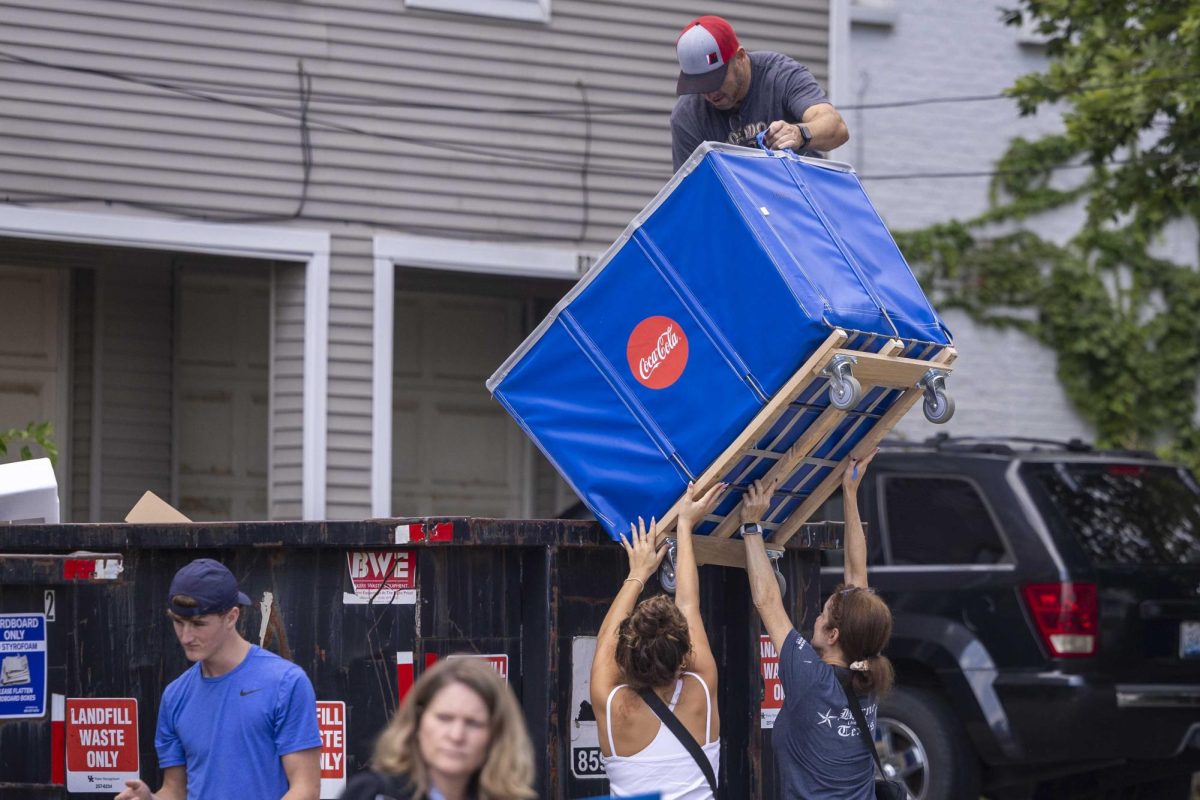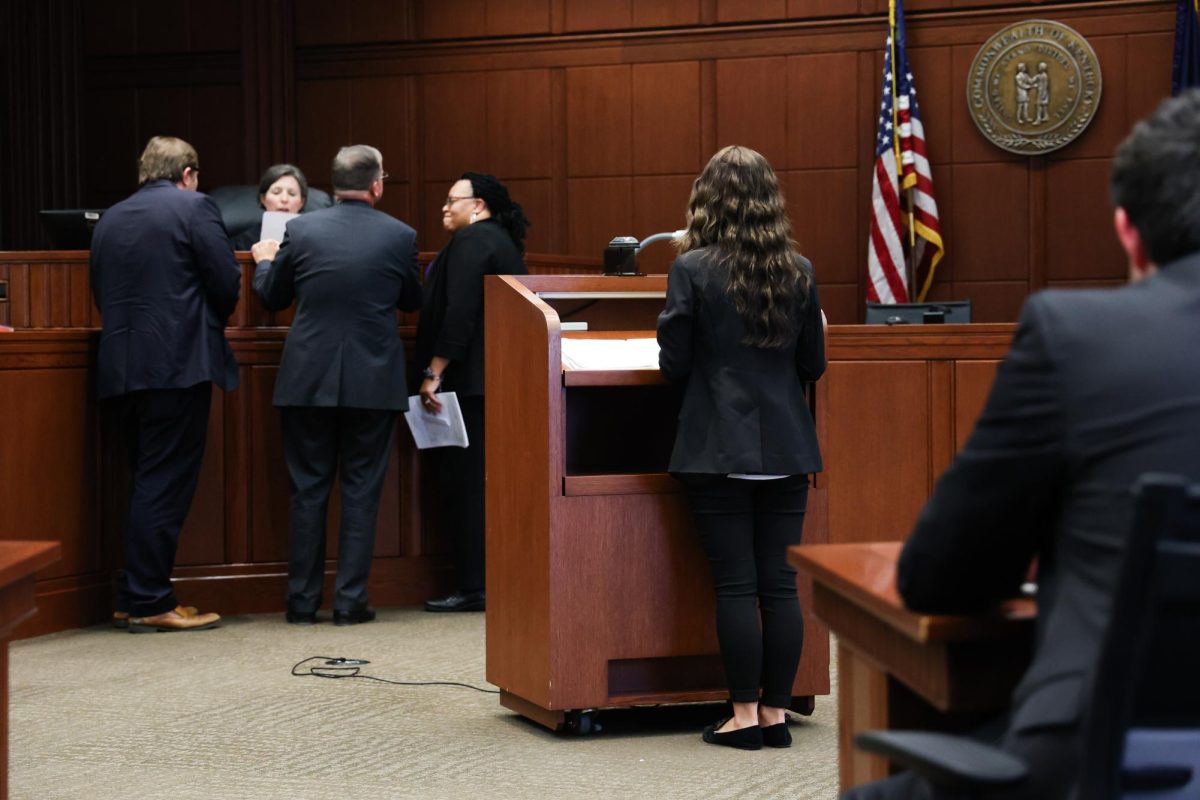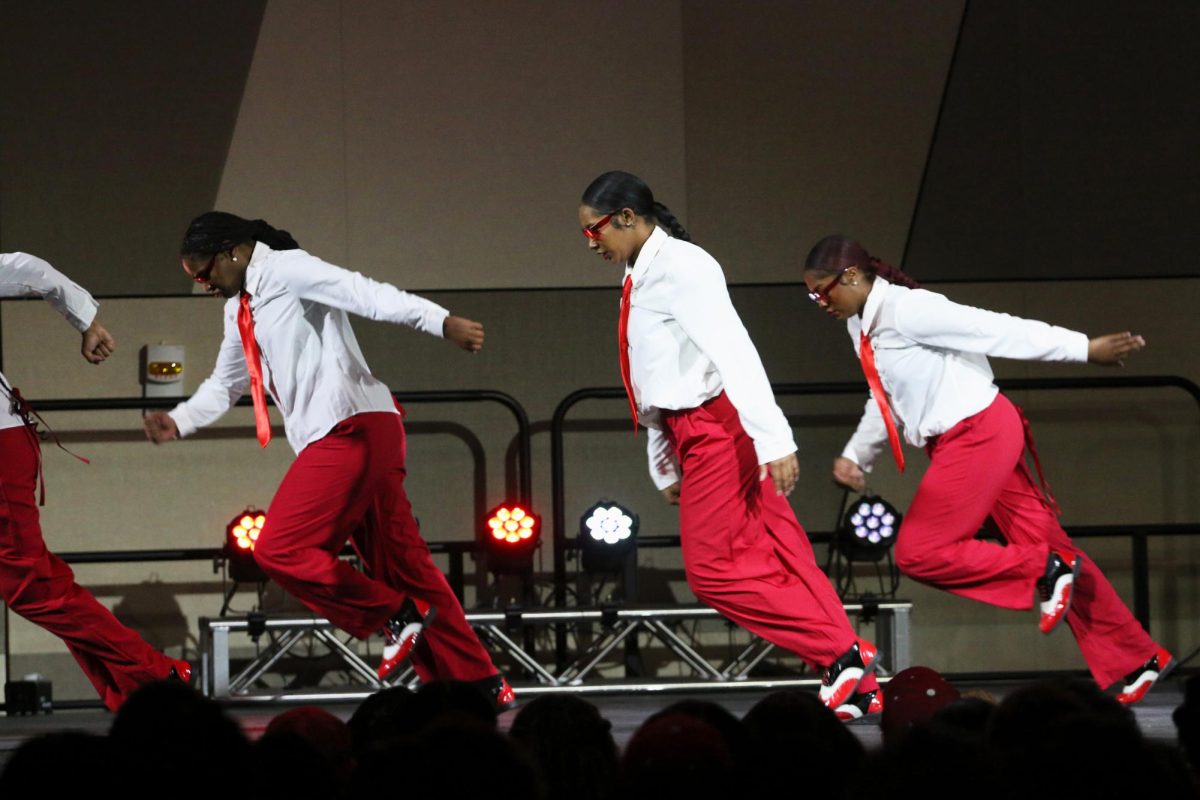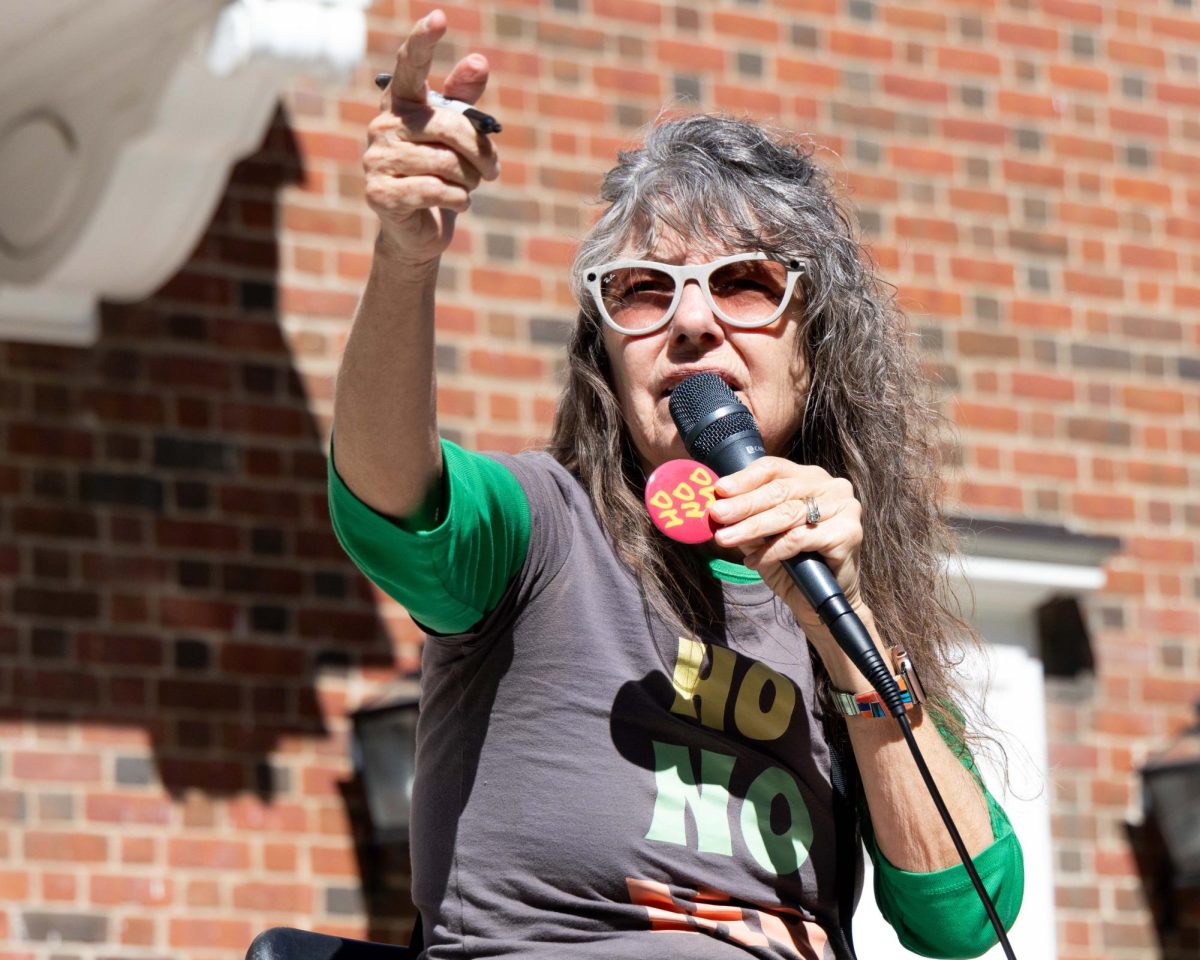Abortion rights at center of discussion: panel marks Roe v. Wade anniversary
January 23, 2013
By Nini Edwards
In a state where abortion laws are restrictive, the 40th anniversary of Roe v. Wade was commemorated Tuesday afternoon held in the Student Center’s Small Ballroom.
Seven women spoke to about 30 people at the Reproductive Justice Symposium about the broader issues of reproductive justice today.
Different perspectives on reproductive justice included legal, medical, public health, social movements, Kentucky abortions and birthing rights.
“Kentucky is a hard place for reproductive freedom,” said Bree Pearsall, a Kentucky Health Justice Network volunteer. “The price of an abortion in Kentucky is higher than the national average.”
Nationwide it is harder to get an abortion today, although it is legal, Pearsall said.
“In recent years we have seen many clinics closing down because of states making it hard for them to keep their doors open,” Pearsall said.
With federal and state laws restricting insurance for abortions, people must come up with cash to pay for the procedure. Most abortions start at $675 and quickly rise to $1,700, Pearsall said.
“Half of all pregnancies in the U.S. are still a surprise,” said Nicole Huberfeld, Gallion & Baker Professor of Law and Bioethics Associate at the UK College of Medicine.
Huberfeld covered the legal definition and history of abortion in the U.S. She said of the unintended pregnancies 4 in 10 are aborted.
“Healthy women provide healthy communities,” Dr. Maria Castro said.
Castro focused on the aspect of women having particular needs that are unmet.
Access to abortion facilities was brought up often in the discussion.
Getting to a clinic is harder for women in low economic standing. “How do you ‘do’ reproductive justice?” public health professor Gabriela Alcalde asked.
Alcalde answered her question by highlighting public transportation, child care, language barriers, patience, food, humility and self-awareness as playing a role in progressive reproductive justice.
She also focused on the large correlations among women’s health, where one lives and economic stance.
“We can tell how long you are going to live based on your zip code,” Alcalde said. Julia Reticker-Flynn, Youth Advocates Network manager, focuses on proactive movements for the youth’s future.
“(I thought) maybe we can (be proactive) with abortion, too,” Reticker-Flynn said.
Reticker-Flynn has hopes to shift the culture of blame and shame correlated with abortion to a more empathetic situation.
She wants people to be seen as more responsible. State funding makes a difference, said Arianna Robinson, a Planned Parenthood of Kentucky employee.
She said people from different states come into Planned Parenthood and question the amount of services that are restricted in Kentucky.
The symposium highlighted that women do not only have the right to have abortions, but women have rights while bearing children, as well.
The night concluded strong with the last speaker, Rebecca Dekker, a nurse and secretary for improvingbirth.org.
Because of a negative experience in a hospital while giving birth, Dekker is passionate about women’s rights with maternity.
“The only place I feel women are treated in an antiquated belittling way is when an OB walks into their delivery room,” Dekker said.
Dekker thought the hospital had its best interest in mind rather than hers.
She thought she was treated like a sick person in the hospital. After her birth, Dekker was shocked when she discovered the care she received was proven to be harmful to the pregnant women and their babies.
With her second pregnancy Dekker chose alternative methods of medicine and hired a homebirth midwife where she had a painless birth at home and in the water.
Dekker started blogging about birth and now has more than 3,400 Facebook followers.
Last Labor Day, improvingbirth.org decided to have a national rally to improve birth. Nearly 10,000 women stood in front of hospitals to rally for women to receive better care during childbirth.
“Reproductive justice is definitely a movement,” Alcalde said.


